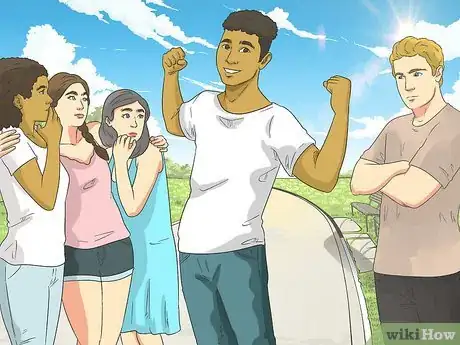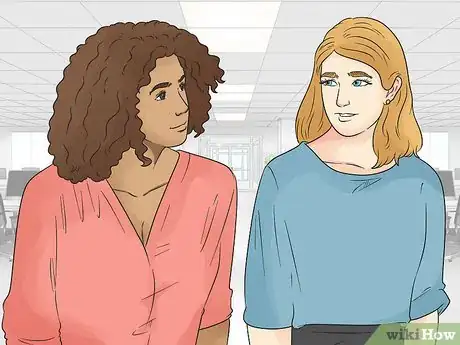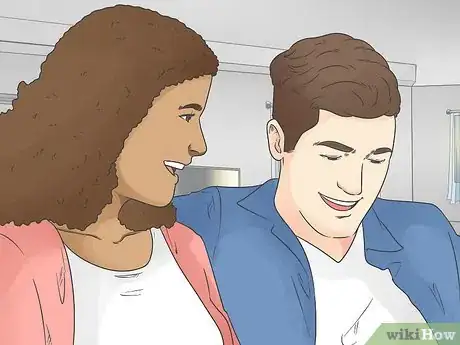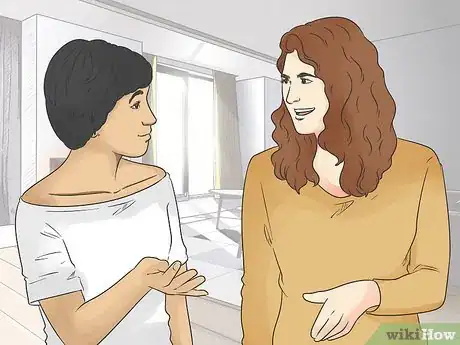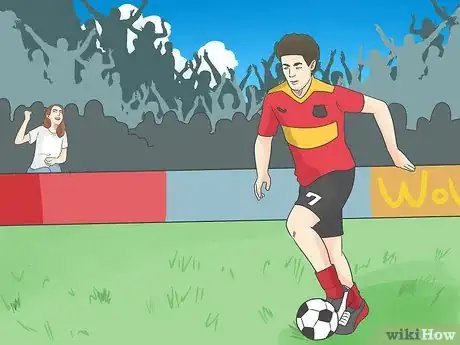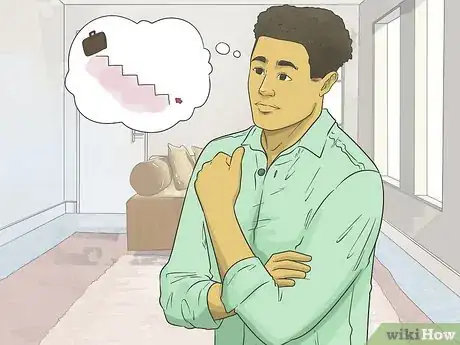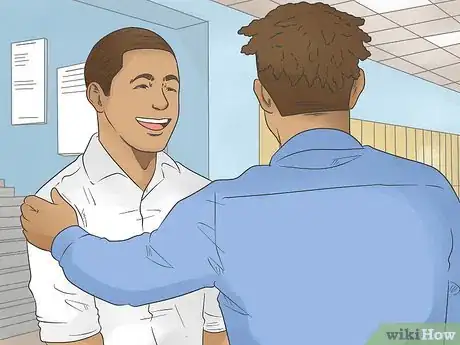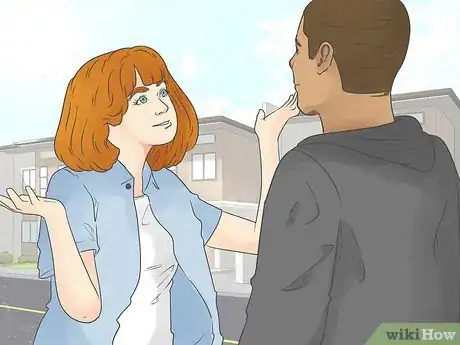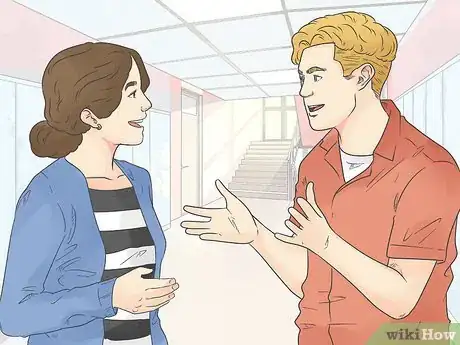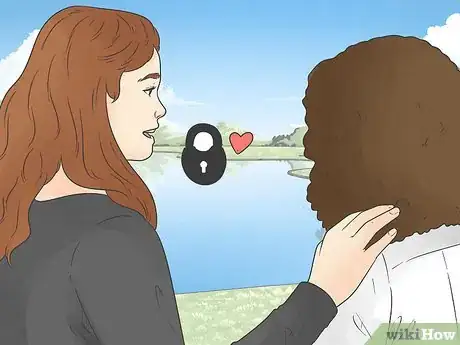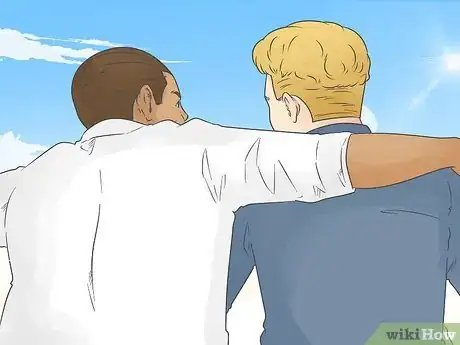This article was co-authored by Tala Johartchi, PsyD and by wikiHow staff writer, Kira Jan. Dr. Tala Johartchi is a Clinical Psychologist based in the Los Angeles, California metro area. With expertise and advanced training in Evidence-Based Practices and therapeutic/behavioral frameworks, Dr. Johartchi specializes in working with individuals, couples, and families experiencing Substance Disorders, Love Addiction and Codependency, Post Traumatic Stress Disorder, as well as common co-occurring disorders such as Depression, Anxiety, and Relational/Attachment difficulties. She earned an MA and PsyD in Clinical Psychology from The American School of Professional Psychology at Argosy University, San Francisco.
There are 12 references cited in this article, which can be found at the bottom of the page.
This article has been viewed 6,694 times.
At one point or another, we all might act less-than-genuine, but it can be tiring to keep up an act. If you feel like a fake friend, it’s important to dig deeper into those feelings–why are you acting fake, and why do you feel like you can’t be yourself? We’ll walk you through steps to stop acting like a fake friend and get in touch with the real you. Soon, you’ll be on your way to finding true friendship in your life.
Steps
Pay attention to how you act around others.
-
Ask yourself, “Am I putting on a show for other people?” Start by noticing which of your actions feel true to who you are and which seem forced. Think about why you’re choosing to put on an act. Are you worried about what other people will think? It’s normal to want to seem super charming and likeable in social settings. But when you act in a way that’s true to who you are, you actually give other people the chance to befriend the truest, best version of yourself![1] X Research source
- Ask yourself, “How would I act if I didn’t have to worry about being judged?”
Put energy into healthy friendships.
-
Spend time with people who accept the real you. It’s easy to feel like you have to act fake around people who expect you to be a certain way or bring you down. Take a moment to step back and ask if you’re really the problem or if you’re just trying to force a friendship that doesn’t work. You don’t have to spend time with people who make you feel like you aren’t good enough. Check in with how you feel about your friendships:[2] X Trustworthy Source HelpGuide Nonprofit organization dedicated to providing free, evidence-based mental health and wellness resources. Go to source
- Do I trust this friend?
- Can I be myself around my friend?
- After we hang out, how do I feel? Do I feel good about myself or do I feel worse?
Give your friends your full attention.
-
Listen without distractions, and really pay attention. Turn off notifications on your devices, and stop multitasking. Ask follow-up questions when you don’t understand something or are interested in learning more. Challenge yourself to really learn about your friends’ life and interests.[3] X Trustworthy Source HelpGuide Nonprofit organization dedicated to providing free, evidence-based mental health and wellness resources. Go to source Even if you’re not interested in the topic at first, just stay patient and you might find yourself more interested as your friend teaches you about it.
- Encourage them to keep talking: "Tell me more about that!" or "And then what happened?"
Follow through on your commitments.
-
Stop flaking, and practice good communication with your friends. Make plans and set dates to hang out that you know will work for you. If you feel nervous about going somewhere or don’t think you’ll be able to make it, be honest with your friend instead of canceling at the last minute.[4] X Research source
- “I really want to see you that weekend, but my schedule’s kind of packed. Could we reschedule?”
- “That party sounds like a lot to me. I’m feeling something more chill. Could we go see a movie instead?”
Support your friends through tough times.
-
Move past being a “fairweather friend.” You might feel nervous about helping a friend when they’re struggling. If you’re worried about making the situation worse, or not knowing what you can do to help, don’t worry. Chances are, your friend will appreciate any help you can offer. And when you don’t know how to support a friend, just ask![5] X Research source
- Ask your friend what they need: “I know things are really hard right now. Is there anything I can do to help?”
- Physically show up for your friend. Sit with your friend through a tough moment, take a walk with them, or go with them to a stressful appointment or event.
Celebrate your friends’ accomplishments.
-
Show genuine happiness and pride when your friends succeed. It’s just as important to support them through the good times as through the bad.[6] X Research source You don’t have to throw a party for all your friends’ milestones, but a congrats text, phone call, or even a hug might go a long way. Here are some other ways to celebrate your friends:
- Show up for any of their big games, presentations, concerts, award ceremonies, etc.
- Buy them coffee or bring them a snack when they do something great at work or school.
- Write them a congrats card for the important accomplishments in their life (like getting a job, graduating, getting engaged or married).
Stop comparing yourself and competing with friends.
-
Let go of jealousy and envy in your friendships. Even though you might’ve heard of “friendly competition,” research shows that competition makes people feel bad in friendships.[7] X Research source All that comparison can tire you out, too! Rather than letting jealousy and envy take over your friendships, turn those feelings into action. Check out these strategies for dealing with friendship envy:[8] X Research source
- Practice accepting yourself and any mixed feelings: “I feel sad that I didn’t get the promotion, but I’m actually really happy for Erica.”
- Refocus on gratitude: “I’m definitely not in as good of a financial place as Deon, but I’m really grateful for the lessons I’ve learned about hard work and being frugal.”
- Use those feelings of competition as a chance to start a deeper conversation: “Hey, you’ve probably noticed I’ve been distant lately. I just want you to know I really support you, but it’s been hard for me seeing you start a family because that’s something I’ve always wanted…”
Share your feelings and experiences.
-
Be vulnerable in order to build a true connection. Are you being fake because you’re afraid of sharing who you are? Even though it’s scary, open up to your friend and build trust by sharing something personal with your friend to show them that you value them.[9] X Research source
- Talk to your friend about your favorite memory.[10] X Trustworthy Source Greater Good in Action An initiative by UC Berkeley's Greater Good Science Center promoting science-based practices for a meaningful life Go to source
- Ask your friend to play a game where you take turns describing 5 positive traits of the other person.
- Share your goals or dreams with your friend.
- Talk to your friend about your childhood or family situation.
Give your friends your honest opinions.
-
Catch yourself when you start to give a canned response. Do you feel like you have to act fake because you’re a people pleaser? Before jumping in with “That’s awesome!” or “Wow,” ask yourself “Do I really feel that way?” Just make sure to express your beliefs in a kind, sensitive, respectful way.[11] X Research source
- “I actually have a different perspective on that. I see where you’re coming from, though.”
- “That movie wasn’t my favorite, but tell me more about why you liked it! Maybe it’ll change my mind.”
Address conflicts and disagreements that come up.
-
Talk about your thoughts and emotions during conflict. Look at disagreements as a chance to learn about another perspective and gain a better understanding of your friends’ values. Discuss issues as they come up in the friendship, rather than letting them build and boil over.[12] X Trustworthy Source HelpGuide Nonprofit organization dedicated to providing free, evidence-based mental health and wellness resources. Go to source
- Try to understand their point of view: “I’d never thought about it that way. How’d you figure that out?”
- Look for areas of common ground: “It sounds like we both agree we need to spend more time together.”
- Express your feelings if the conflict heats up and, if you need, take a time out: “I’m getting pretty frustrated by this, so I’m not in a good place to talk. Can we come back to this later?”
Keep your friends’ secrets.
-
Think of your friendship as a bank vault for trust. The trust you share with your friends is what creates a meaningful connection and keeps it safe. Whether or not they directly ask you to keep a secret, really try to watch what you tell others about a friend’s personal life or struggles.[13] X Research source
Apologize if you hurt your friends.
-
Own up to your mistakes and try to do better. From having to cancel a hangout to saying something you didn’t really mean, slipping up in a friendship doesn’t have to be the end of the world. Show you’re a true friend by admitting when you’ve done something wrong and that you recognize the impact it had on your friend’s feelings.[14] X Trustworthy Source Harvard Business Review Online and print journal covering topics related to business management practices Go to source
- Explain how you were wrong and say you’re sorry: “I’m really sorry I wasn’t there for opening night at the theater.”
- Tell your friend you understand the impact your mistake had: “I know you were disappointed and hurt.”
- Describe how you’ll make it up or avoid making the mistake in the future: “It won’t happen again, and I brought you celebration cupcakes because I believe in your show!”
You Might Also Like

 Signs Your Ex Will Eventually Come Back
Signs Your Ex Will Eventually Come Back


 What Are the Bases in a Relationship? Defining the Baseball-Sex Metaphor
What Are the Bases in a Relationship? Defining the Baseball-Sex Metaphor
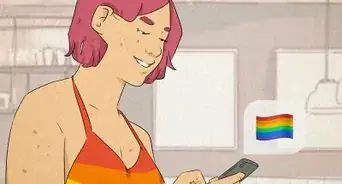 The Top Emojis a Girl Will Use if She Likes You
The Top Emojis a Girl Will Use if She Likes You
 How to Tell if Your Girlfriend Is Horny: 12 Signs She's Turned On
How to Tell if Your Girlfriend Is Horny: 12 Signs She's Turned On
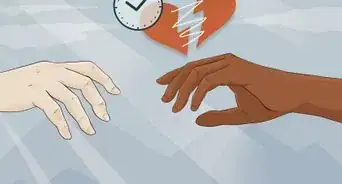 What to Do When Your Girlfriend Is Mad at You (10+ Steps to Take)
What to Do When Your Girlfriend Is Mad at You (10+ Steps to Take)
 12+ Texts to Send Your Girlfriend After a Fight: Apologies & More
12+ Texts to Send Your Girlfriend After a Fight: Apologies & More
 How to Have Phone Sex with Your Girlfriend
How to Have Phone Sex with Your Girlfriend
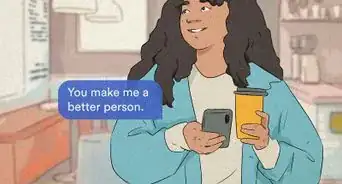
 33 Sweet & Romantic Apology Messages for Your Love
33 Sweet & Romantic Apology Messages for Your Love
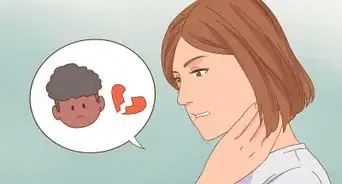
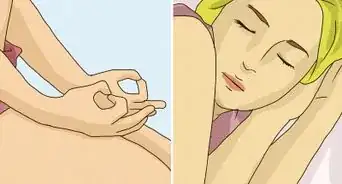 12 Ways to Break a Narcissist's Heart
12 Ways to Break a Narcissist's Heart
References
- ↑ https://www.psychologytoday.com/us/blog/click-here-happiness/201904/develop-authenticity-20-ways-be-more-authentic-person
- ↑ https://www.helpguide.org/articles/relationships-communication/making-good-friends.htm
- ↑ https://www.helpguide.org/articles/relationships-communication/making-good-friends.htm
- ↑ https://www.psychologytoday.com/us/articles/200701/field-guide-the-flake
- ↑ https://www.scientificamerican.com/article/how-to-be-a-better-friend/
- ↑ https://www.psychologytoday.com/us/blog/lifetime-connections/201801/ten-ways-become-better-friend
- ↑ https://psycnet.apa.org/record/2008-03277-001
- ↑ https://www.psychologytoday.com/us/blog/casual-close/201711/how-cope-when-you-re-envious-friend
- ↑ https://www.scientificamerican.com/article/how-to-be-a-better-friend/
- ↑ https://ggia.berkeley.edu/practice/36_questions_for_increasing_closeness
- ↑ https://www.psychologytoday.com/us/blog/lifetime-connections/201801/ten-ways-become-better-friend
- ↑ https://www.helpguide.org/articles/relationships-communication/conflict-resolution-skills.htm
- ↑ https://www.canr.msu.edu/news/trust_is_one_of_the_most_important_aspects_of_relationships
- ↑ https://hbr.org/2013/03/how-to-give-a-meaningful-apolo
About This Article

